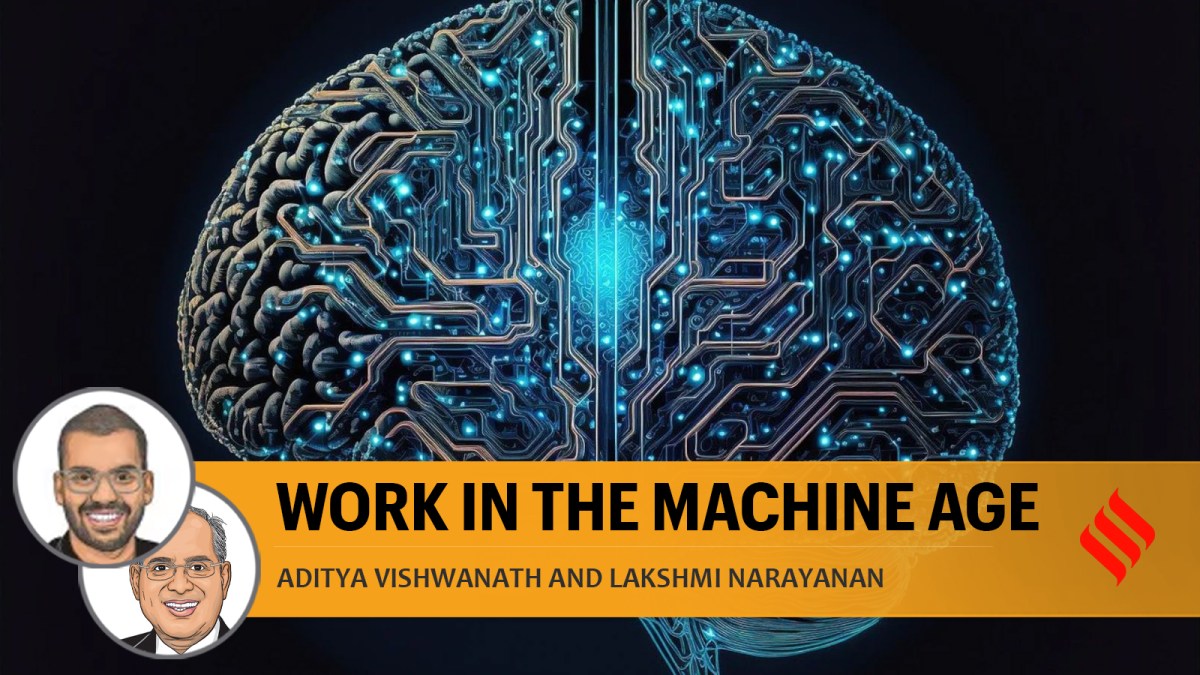
India is facing a multidimensional employment crisis — one that is both visible and invisible. The visible crisis is measurable: Over 80 per cent of unemployed Indians are from the youth, despite most having secondary or higher education. One in three young Indians is disengaged from both work and learning. Meanwhile, India must create over 90 million new jobs by 2030, many in fields that don’t yet exist.
The invisible crisis runs deeper. It lies in the rapid transformation of the very nature of work. As artificial intelligence, automation, and data-driven systems reshape entire industries, every worker — regardless of sector or skill level — must grapple with a central question: How replaceable is my work by technology?
This means that every individual must be capable of continual evaluation. What are the skills I bring to a task? How easily can these be replicated or replaced by technology?
Low-skill, low-replaceability jobs may remain safe — for now. But both high-skill, high-replaceability and low-skill, high-replaceability roles are at growing risk. The only durable edge will come from the ability to learn new skills quickly and continuously.
When we talk about the role of AI in the future of work, we are really referring to a set of foundational capabilities — technology literacy and data literacy — that enable people to understand, work with, and adapt to intelligent systems. These are the real, tangible competencies that underlie “AI literacy” in a workforce context.
Technology literacy equips individuals to engage with how machines operate, how digital systems function, and how automation tools are deployed across industries. Data literacy enables people to interpret, analyse, and act on the vast volumes of information that increasingly shape every decision-making process.
These literacies must begin early — in schools and colleges — not just to train future engineers, but to prepare artists, educators, policy-makers, scientists, and frontline workers to adapt and lead in a technology-rich world.
In envisioning how education must respond, Joseph Aoun, President of Northeastern University, offers a powerful framework called Humanics. He asks, what do we do when the machines do everything.
Aoun argues that future-ready education must rest on three pillars. One, technical ability or understanding how machines work and how to work with them. As AI and robotics take over more tasks, workers who can interact with and augment these systems will become more productive and indispensable. Two, data discipline that pertains to the ability to read, analyse, and act on data. In a world of algorithmic decision-making, navigating vast streams of information is essential for strategic thinking and problem-solving. Three, human discipline is primarily about skills that machines cannot (yet) replicate: Empathy, creativity, cultural agility, and contextual reasoning. These are what allow people to transfer insights across domains, innovate meaningfully, and lead with purpose.
In practice, this means moving beyond rote learning toward experiential, interdisciplinary, and lifelong education.
One powerful tool for enabling this shift is the growing model of micro-credentials: Short, focused certifications that allow learners to stack skills over time. Globally, universities are embedding these credentials into undergraduate and graduate programmes — not just in computer science, but in liberal arts, business, and the sciences.
For instance, a political science student may take a credential in data visualisation for public policy. A historian might earn one in AI-assisted archival research. In India, where higher education has long been degree-centric and rigid, such modular and cross-disciplinary pathways are urgently needed.
Importantly, these credentials also support lifelong learning. As job roles evolve rapidly, workers must continuously re-skill — not through costly new degrees, but through accessible, agile learning options. To prepare a generation for jobs that do not yet exist, India must build an education system anchored in agency, adaptability, and equity. This means embedding tech and data literacy across school and college curricula, training educators to be facilitators of future-ready skills, not just content delivery, promoting micro-credentials that enable personalised, stackable learning and encouraging interdisciplinary application of tech across all fields—from arts to healthcare to agriculture.
The future of work is uncertain — but it is not out of our control. By cultivating broad-based tech and data literacy, fostering human-centric skills, and enabling lifelong learning, we can give every student the agency to shape their path in a world of intelligent machines.
This is not just about producing AI engineers. It’s about preparing a nation of problem-solvers, creators, and adaptive thinkers ready to lead in a rapidly evolving global economy.
Vishwanath is the co-founder of MakerGhat & Inspirit, and a visiting research scholar at Stanford University. Narayanan is the Director of Krea University & Chennai Math Institute and former CEO of Cognizant. This article is the fourth in a series on AI in India